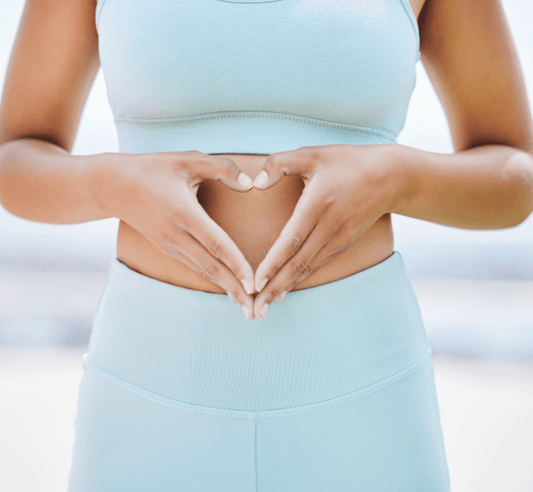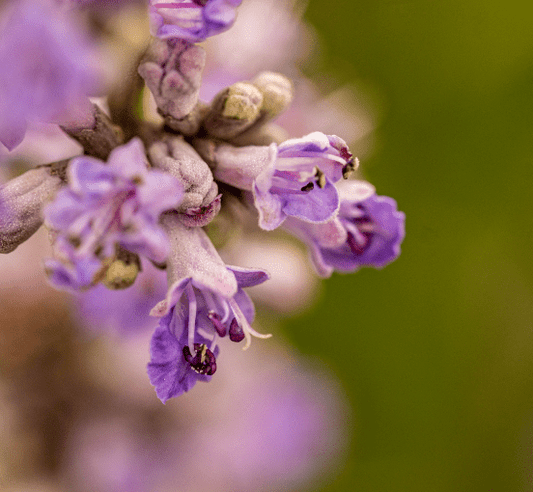Table of contents
Hormonal fireworks cause emotional turbulence
PMS symptoms

Apr 25, 2025
Overjoyed, heartbroken—the days leading up to your period are often accompanied by mood swings, but also pain. But don't worry, Mother Nature is on hand to help.
Irritability, crying for no reason, listlessness, anxiety, insomnia accompanied by headaches, abdominal discomfort, and skin problems – the list of symptoms that signal premenstrual syndrome (PMS) is long. More than 80 percent of women of childbearing age across Europe are affected from time to time, and 30 percent of them suffer severely. Starting at the age of 12 or 13, they experience it approximately 500 times in their lives. In Austria, where approximately two million women of childbearing age live, an estimated 400,000–800,000 women suffer from PMS. In about three to eight percent, the symptoms are so severe that they are classified as premenstrual dysphoric syndrome (PMDD), a medical diagnosis that justifies absence from school or work.
The causes of PMS syndrome are still unclear. One possible explanation is related to hormonal imbalance – affected women react more sensitively to the rise in progesterone and the simultaneous drop in estrogen during the luteal phase (the second half of the female cycle, beginning with ovulation and ending with the onset of menstruation) and experience PMS symptoms.
Typical physical symptoms of PMS
- Breast tenderness and swelling: Estrogen promotes water retention in the tissue, making the breast feel more sensitive.
- Bloating and water retention: The falling progesterone level promotes water retention, which can make the body feel bloated.
- Headaches and migraines: The drop in hormones can affect the blood vessels, leading to tension headaches or migraines
- Digestive problems: Progesterone relaxes smooth muscles, including those in the intestines, which can lead to constipation or bloating.
- Fatigue and sleep problems: Serotonin levels decrease with progesterone levels, which can affect the sleep-wake cycle.
Typical psychological problems with PMS
In addition to physical complaints, psychological symptoms also often occur, as hormones are closely linked to neurotransmitters:
- Irritability and mood swings: Low serotonin levels can lead to bad mood and increased irritability.
- Anxiety and nervousness: Progesterone has a calming effect, but its decline can lead to inner restlessness.
- Low mood and depression: The drop in hormones can reduce the production of happiness hormones such as serotonin.
- Concentration problems: Fluctuations in hormone levels can affect cognitive abilities.
Behavioral changes due to PMS
The physical and psychological symptoms often lead to altered perception and reaction to the environment:
- Social withdrawal: Many affected individuals feel irritated or overwhelmed and avoid social interactions.
- Changed appetite: Low serotonin levels can trigger cravings for carbohydrates or sweets.
- Reduced stress resistance: PMS can reduce tolerance for everyday stress, leading to quicker frustration reactions.
- Altered libido: While some experience increased desire, others experience a loss of libido.
It is therefore no wonder that more than 50 percent of women view their menstruation with mixed feelings, as surveys conducted as part of the Menstrual Health Report of the Federal Ministry of Social Affairs, Health and Care (BMSGPK) show.
The good news: There's a herb for every ailment. In the case of PMS, it's chasteberry (Vitex agnus castus). Its fruits have been used for various female ailments since ancient times. The active ingredients it contains balance hormonal imbalances and have relaxing, antispasmodic, and diuretic effects.
This alleviates physical and mental discomforts such as the feeling of tension and swelling in the breasts, water retention in the tissue and mood swings that occur with PMS.
* Sources:
- 1 Federal Ministry of Social Affairs, Health, Care and Consumer Protection (BMSGPK). (2024). Menstrual Health Report 2024. Vienna: BMSGPK.
- 2 German Society of Gynecology and Obstetrics (DGGG). (2021). S1 Guideline on Premenstrual Syndrome (PMS) and PMDD. AWMF Registry Number: 015-089.
- 3 Hirslanden Women's Hospital Zurich. (2020). Dobler, A. Hormonal fluctuations and PMS: causes, diagnostics, and therapy. Zurich: Hirslanden.
- 4 NetDoktor.at (2023). PMS – Premenstrual Syndrome: Symptoms and Help. www.netdoktor.at
- 5 Müller, S. (2022). Premenstrual syndrome: Symptoms, causes, and treatment approaches. Bern University of Applied Sciences – Department of Health.
- 6 University Hospital Freiburg (Germany). Dr. C. Stute. PMS and PMDD: Clinical Pictures and Treatment Options. Center for Gynecology, 2021.
- 7 Federal Institute for Drugs and Medical Devices (BfArM). (2018). Commission E-Monograph on Chasteberry (Vitex agnus-castus).




